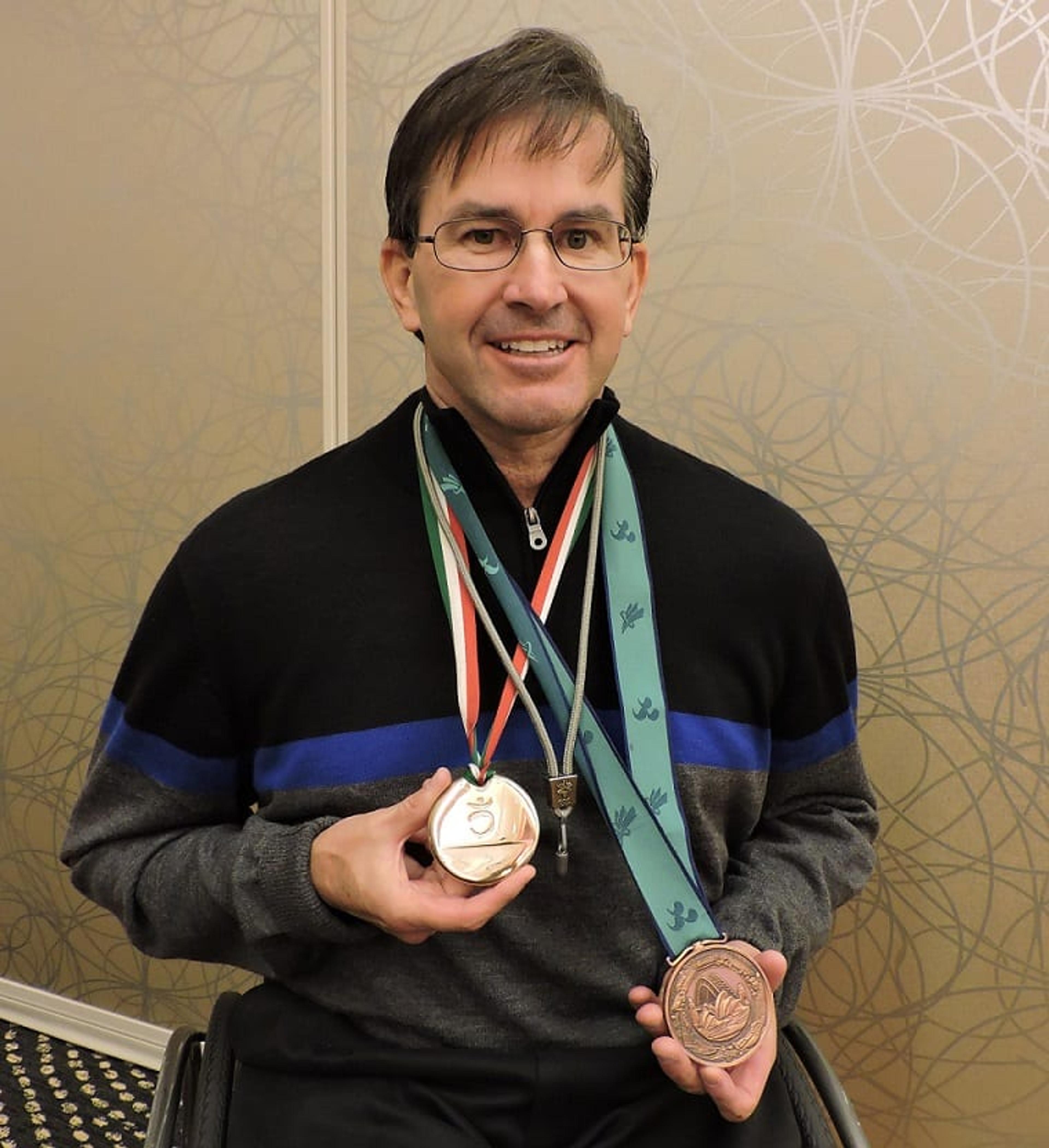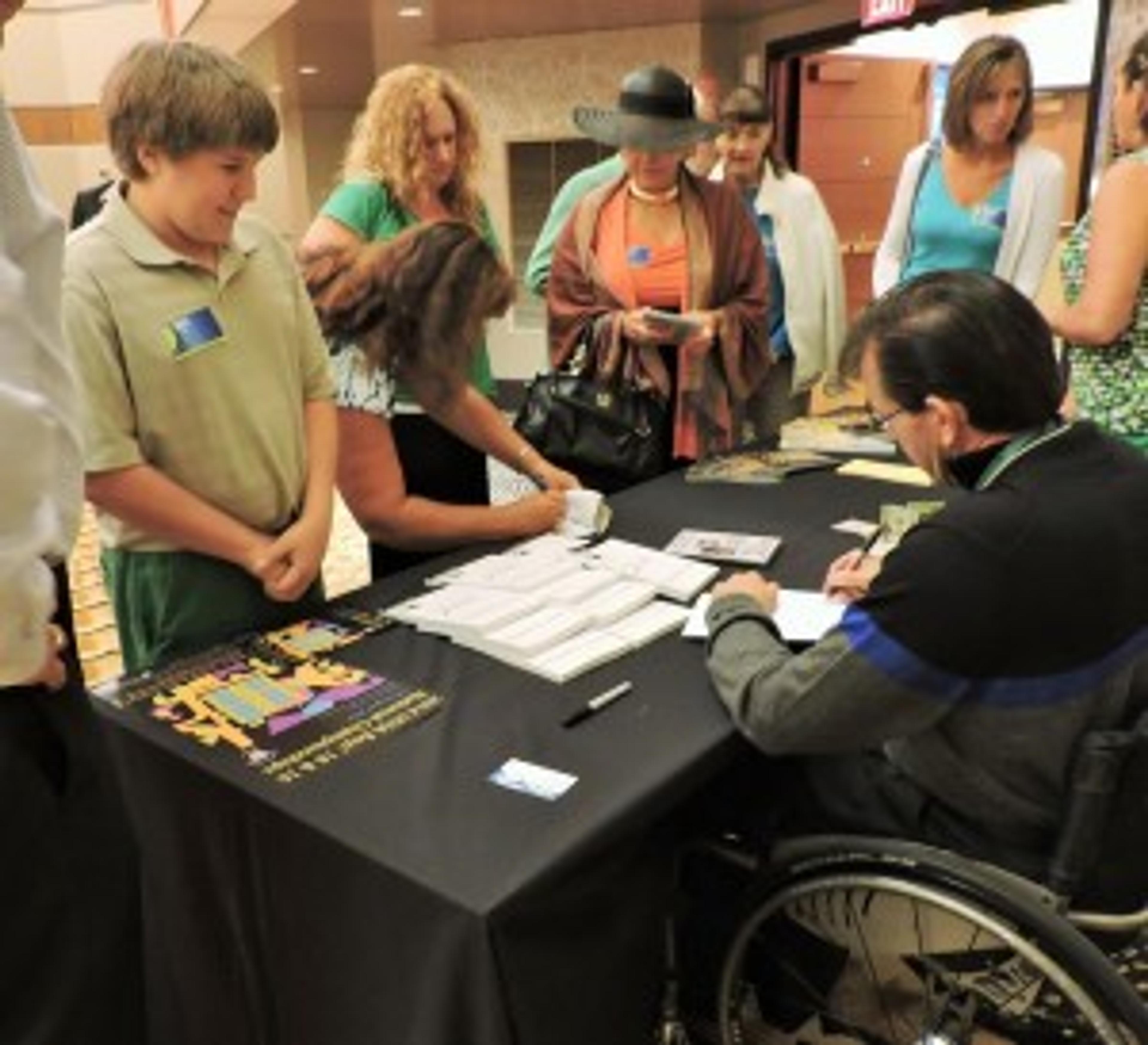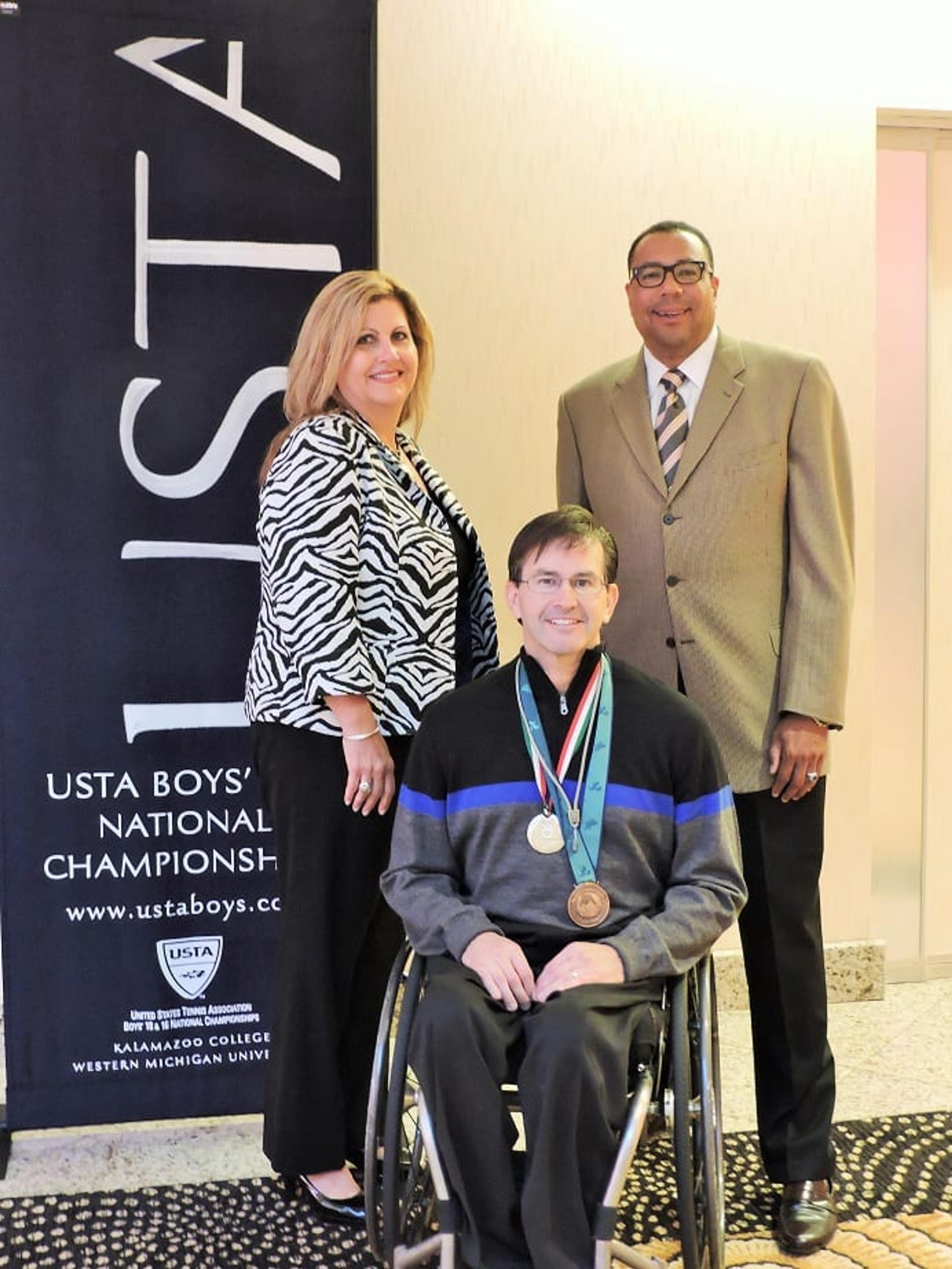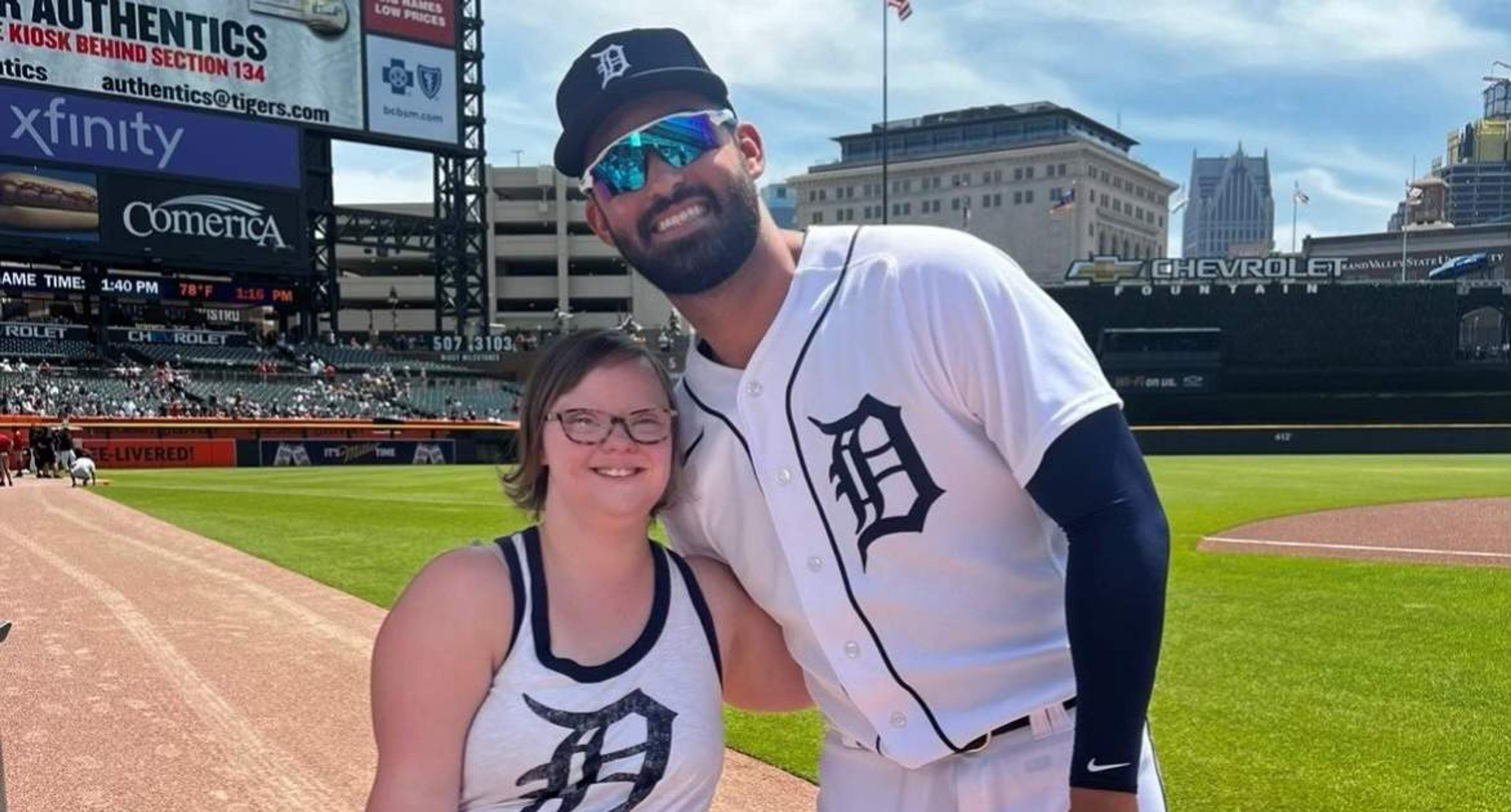Former Olympian Shares Inspiring Message at Salute to Healthy Living Breakfast

Julie Bitely
| 4 min read

A single bullet changed Mike Schlappi’s life forever.
It was just another day in the small farming community he grew up in, situated in central Utah. Schlappi described his childhood and young adulthood as idyllic.
“I knew in my soul that life was full of unlimited opportunities,” he said. “Life was just good.”
The high school athlete went over to a friend’s house the night before a championship football game he was supposed to play in. He found his friend in the house holding his dad’s off-duty police gun. He’d emptied four bullets from the gun, thinking they were all removed.
Goofing around, he pointed it at Schlappi’s chest and pulled the trigger.
“I still remember that echo,” he said. “I thought, this can’t be real.”
Doctors at the hospital were amazed the bullet missed his heart. An inward breath when he was shot – a mere ½ inch difference – likely saved his life, according to the x-rays.
In the hospital, a 15-year-old Schlappi was depressed. A life of possibility had seemingly disappeared because of one careless mistake. Once known as “happy Schlappi”, he turned into “crappy Schlappi” during those initial days and weeks.
However, glimmers of hope eventually surfaced. A funny guy by nature, Schlappi played a prank on a nurse, putting his thermometer in a frozen drink. When she came back for the reading, Schlappi said he had his first laugh – a turning point – at her expense as she reacted to the cold temperature.
As he watched his legs grow thinner and thinner, he resolved to not let his dreams or future atrophy along with his muscles. His mom’s wise words – just because he couldn’t stand up didn’t mean he couldn’t stand out – became his mantra.

Mike Schlappi signs a book for Will Scott, 15, of Plainwell.
He hung the bullet that changed his life’s path around his neck atop Olympic medals he earned as part of the U.S. Men’s Wheelchair Basketball team at the recent Salute to Healthy Living breakfast in Kalamazoo, hosted by Blue Cross Blue Shield of Michigan and Blue Care Network.
“I got shot. What’s your problem?,” he asked the crowd.
Schlappi explained that when his bullet was removed from his spine, he decided to make peace with his situation, even forgiving the friend who had shot him.
“I let it go,” he said. “I got the lead out, so to speak.”
He told the crowd if he can do it so can they, whether they’re dealing with work stress, divorce, family or medical situations, or past regrets.
“Find your bullet – what stops you, what paralyzes you,” he said. “Admit it’s there and deal with it.”
Schlappi also challenged them to make a difference in the lives of others, even in small ways. He told the story of Wendy, the first girl to ask him to dance in his wheelchair. He reluctantly agreed and half-heartedly pushed his chair through a fast dance. When a slow song came on, Schlappi said Wendy knelt by his wheelchair and not knowing what else to do, he awkwardly patted the top of her head. Eventually, the pair decided that Wendy should sit in his lap, making him the envy of his peers. He said she made a difference in his life, however small.
“I’m thankful she took a chance to dance with me,” Schlappi said.
He went on to have an extremely successful Olympic career, meeting a goal he had set to be the first wheelchair basketball player to play in four consecutive games. The U.S. team won gold in Seoul and Barcelona in 1988 and 1992, respectively, although the Barcelona medal was stripped after one of Schlappi’s teammates tested positive for drugs. In Atlanta in 1996, the team took bronze, which Schlappi wasn’t happy about.
Four years later in Sydney, Australia, he was the oldest member on the team. He realized he’d grown up a lot in four years when he celebrated making the winning shot of the bronze medal game.
“I learned that third place in a world of billions isn’t too bad,” he said. “I’m proud of my bronze medal.”

Former Olympian Mike Schlappi is joined by Sophia Quinn, Blue Cross Blue Shield of Michigan Sales Manager, and Mark Riley, USTA Tournament Director.
The Salute to Healthy Living breakfast kicked off the USTA Boys’ 18 and 16 National Championships, which continues through August 10 on the campuses of Kalamazoo College and Western Michigan University in Kalamazoo.
Photo credit: Julie Bitely





